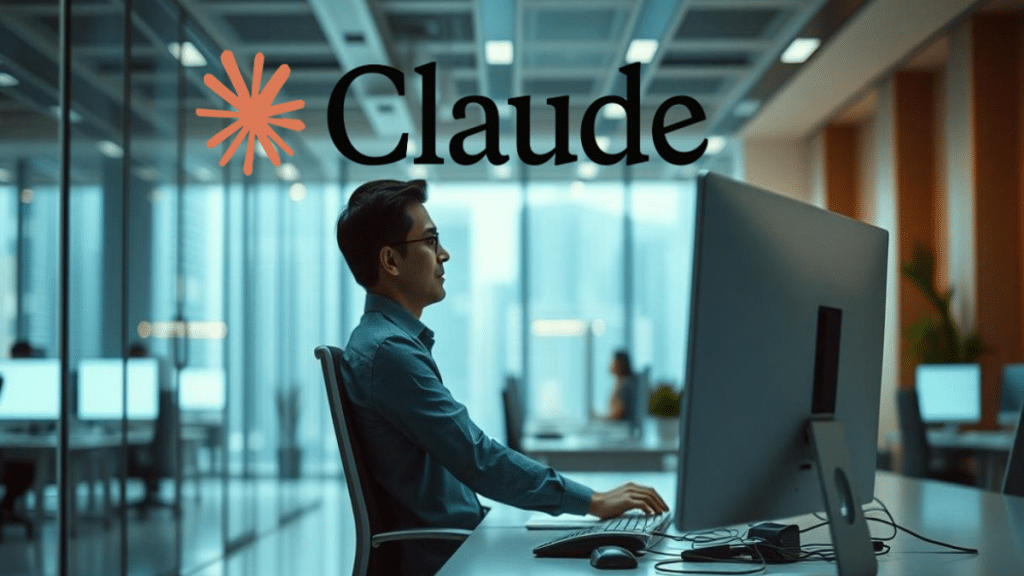ChatGPT, Claude, and Gemini are no longer the future of work – they are the work. In 2025, a quiet revolution is reshaping how startup founders manage their days. The change didn’t begin with billion-dollar enterprise deployments or flashy AI assistants. It started with something more mundane: email follow-ups, slide decks, onboarding FAQs, meeting notes. The kind of cognitive drain that buries creativity.
Founders weren’t looking for magic – just for relief. They were exhausted by bloated calendars, Slack pings that never ended, and endless mental switching between deep work and shallow noise. That’s where AI came in – not as a replacement for leadership, but as a shield against burnout.
This is the story of how Claude, ChatGPT, and tools like Gemini quietly replaced busywork – and gave founders their brains back.
When Work Got Too Smart to Be Productive with Claude and ChatGPT
In the early 2020s, startups began running like spreadsheets: every interaction tracked, every deadline color-coded, every conversation logged. In theory, it should’ve made work smoother. In practice? It paralyzed creative people with cognitive clutter.
Founders like Mia, who built a retail AI tool in Boston, found herself managing nine tools just to keep her team aligned. Every week she’d spend six hours preparing internal updates, and another three tweaking slide decks for investor calls. None of that moved the business forward – but all of it was necessary. Or so she thought.
Enter Claude. She gave it one week of transcripts and internal notes. By the following Monday, it was writing her internal updates – better than she could. Then ChatGPT took over templating her investor memos. Gemini synced the output into Google Slides.
Mia didn’t just get back hours. She got back energy.
“By week two, I had 11 hours back in my calendar. And the crazy thing? My team noticed too. I was present again.”
AI Isn’t About Automation – It’s About Cognitive Delegation
Unlike traditional automation, AI doesn’t remove humans from the loop. It repositions them. You no longer write from scratch. You shape, supervise, and approve.
That’s why founders aren’t scared of ChatGPT or Claude. They’re grateful. Because for once, the burden of context – remembering every detail, formatting every file, tracking every decision – is shared.
This mental offload matters. Startup leaders aren’t just dealing with output – they’re managing people, investor pressure, and internal growth. When AI takes care of the structure, humans can finally focus on strategy.
And it’s not about perfection. Claude might miss a nuance, ChatGPT might phrase something oddly. But correcting something 80% finished is far easier than facing a blinking cursor at midnight.
Where Chatronix Became the Secret Weapon
What changed everything for many founders wasn’t just the AIs – it was how they used them. Instead of jumping between ChatGPT tabs, Anthropic’s Claude, or Google’s Gemini, they began consolidating workflows inside platforms like Chatronix.
With Chatronix, founders run the same prompt through multiple models, compare outputs, and instantly reuse or refine them. It acts like a command center – not just for writing, but for managing entire business flows.
Imagine this:
- You drop your weekly standup transcript.
- Claude extracts action items.
- ChatGPT rewrites them in your team’s tone.
- Gemini schedules the tasks automatically.
And it happens in under five minutes.
Founders aren’t paying $200/mo for separate tools anymore. Chatronix centralizes it for $25/month, saving over 6 hours a week. That’s not just ROI – it’s sanity.

What a Day Looks Like Now
Let’s break this down through the eyes of Sam, who runs a 12-person SaaS startup in Austin.
Before AI:
- Mornings meant answering emails and structuring team briefs manually.
- Afternoons blurred into calendar fatigue: prepping for pitches, answering repetitive onboarding questions.
- Evenings were catch-up time – usually writing reports or summarizing investor calls.
Now?
Sam’s mornings begin with a single Claude prompt summarizing the day’s top priorities based on Slack updates. His team meetings are transcribed in real-time, then automatically summarized by ChatGPT. Investor updates are generated every Friday by Gemini using metrics exported from Notion.
More importantly, his evenings are his again.
“I used to feel like I was managing tools. Now I feel like I’m leading a company.”
<blockquote class=”twitter-tweet”><p lang=”en” dir=”ltr”>Coding just became optional.<br><br>Claude’s artifacts turned app development into conversation.<br><br>Just describe your idea and watch it cook.<br><br>The technical barriers that protected devs for decades?<br><br>Gone.<br><br>Watch what happens next:<br><br>- Your grandmother builds better apps than most… <a href=”https://t.co/JC9kcG7Zwg”>pic.twitter.com/JC9kcG7Zwg</a></p>— Pete Sena (@petesena) <a href=”https://twitter.com/petesena/status/1938036852935586132?ref_src=twsrc%5Etfw”>June 26, 2025</a></blockquote> <script async src=”https://platform.twitter.com/widgets.js” charset=”utf-8″></script>
It’s Not About Doing Less – It’s About Doing the Right Things
Founders aren’t trying to work less. They’re trying to work on what matters.
AI tools have replaced:
- Deck formatting
- Internal comms
- Hiring template creation
- Meeting recap drafting
But they haven’t touched:
- Vision
- Conflict resolution
- Strategic roadmap pivots
And that’s exactly the point.
AI is letting people return to the parts of business that can’t be templated. In 2025, founders are no longer drowning in deliverables. They’re thinking again – and that’s the foundation of resilience.
Final Word: The Death of Busywork Means the Return of Vision
If 2023 was about experimentation, and 2024 was about AI hype, then 2025 is the year of AI utility. We’re done asking what these tools could do. We’re finally seeing what they should do.
Claude and ChatGPT didn’t kill creativity – they killed the clutter that smothered it.
If you’re building something in 2025, you can’t afford to lose 30 hours a week to formatting, follow-ups, or meeting decks. And with tools like Chatronix, you don’t have to.
Start small. Automate with purpose. And make space for the work only you can do.
→ Reclaim your time today at Chatronix.ai.
